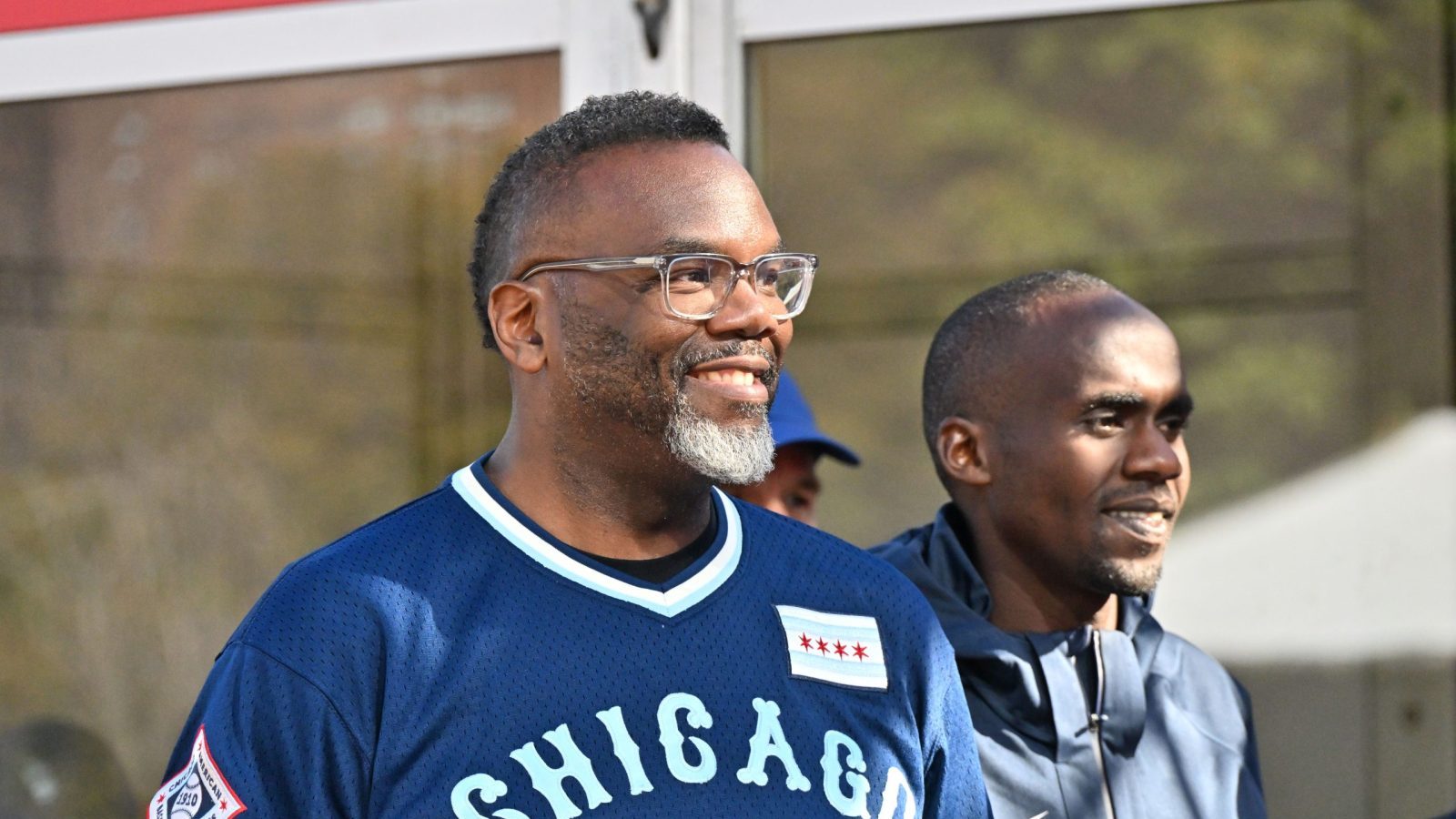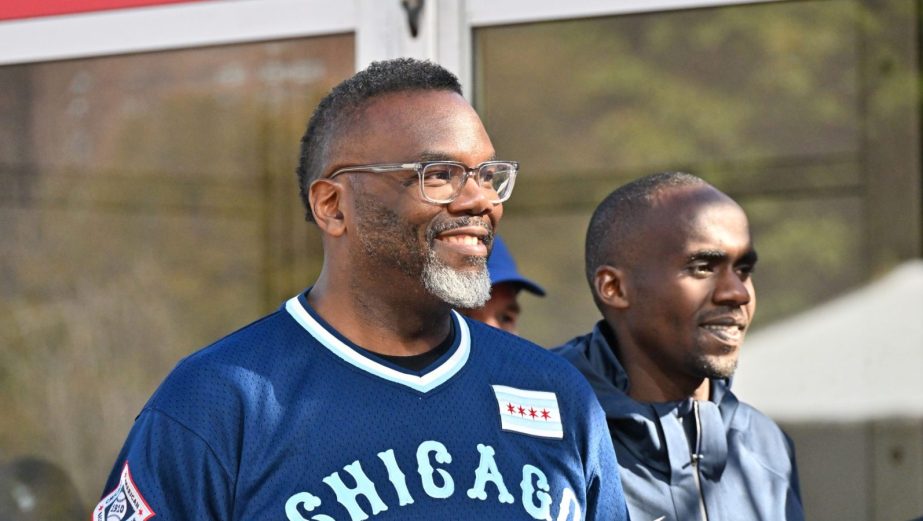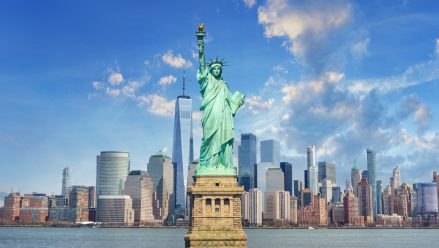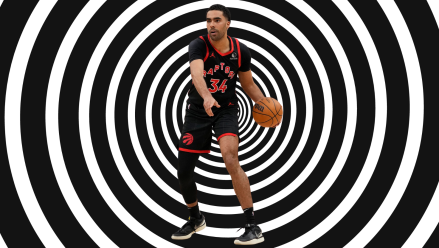Chicago Mayor Brandon Johnson put forward his 10.25% tax on sports betting revenue generated in the city among a slew of proposed revenue ordinances that will further raise the ire of licensed Illinois sportsbooks. This tax would be above the state’s current sliding scale of 20%-40% tax on revenue and per-wager tax.
The sports betting industry has shouldered tax increases in the second-largest legal betting market in the U.S. both this year and last as Illinois state legislators filled budget holes in Springfield. Now Johnson proposes to do likewise in the third-largest city in the country trying to address a projected $1.2 billion gap in his 2026 budget.
The 10.25% levy would apply to all sports betting revenue generated in the city — currently DraftKings is paying a 2% tax on revenue generated from its retail sportsbook adjacent to Wrigley Field. Johnson’s proposed rate would create a minimum effective tax of 32.25% on such operator winnings.
Illinois passed a progressive tax on sports betting revenue last year with a base of 20% and a ceiling of 40% based on revenue thresholds. Cook County, which includes Chicago, already imposes a 2% tax on all revenue generated within its borders.
Those taxes are separate from the recently enacted wager surcharge on all mobile bets, which is 25 cents per wager for the first 20 million accepted wagers and 50 cents per wager thereafter for each operator over a fiscal year. That passed as part of Gov. JB Pritzker’s Fiscal Year 2026 budget in May and took effect July 1. It has been a consistent lightning rod for criticism from industry stakeholders and generated $21.1 million in revenue the first quarter of the fiscal year.
The SBA goes on full media blitz
The Sports Betting Alliance (SBA), comprised of FanDuel, DraftKings, Fanatics, BetMGM, and bet365, is aggressively working to get Johnson’s tax hike rebuffed. In addition to a social media blitz via Barstool Sports and the social media platform X, the SBA purchased television ad time in Chicago over the weekend, and launched an email campaign to local residents to bring attention to the proposal.

The group seized on a 15% year-over-year downturn in wagering volume for September according to the Illinois Gaming Board’s revenue report released Thursday, calling it a “warning sign for policy makers,” perhaps indirectly targeting the Chicago City Council.
The state’s figures for the month, though, are far more nuanced beyond betting volume. Despite the decline in wagers, handle still increased 9% year-over-year to over $1.4 billion. Adjusted gross revenue plunged 26.2% to $100.7 million largely due to improved public betting performance: The 7.1% hold was down more than three percentage points.
Additionally, DraftKings and FanDuel took different countermeasures to the wager surcharge that looked to have a drastic impact on volume and handle for their top moneymaker — parlay wagering. Their 13.7 combined million parlay bets last quarter represented a 26.5% decline year-over-year; DraftKings had a steeper drop in volume at 32.7% to 6.1 million, FanDuel was off 20.6% to 7.5 million.
DraftKings, though, did not put pass the surcharge onto bettors who made parlay bets of $10 or more. Its year-over-year handle for the multi-leg wagers increased 19.1% to $158.4 million, and its average parlay wager increased 76.8% to $25.78.
FanDuel, which has a universal 50-cent passthrough on all bet types, reported a 5.7% decline in parlay handle to $153.7 million but also an 18.7% uptick in the average parlay wager amount to $20.41.
Some nuanced napkin math
Johnson’s proposal estimates generating $26 million per year in revenue, which projects operator adjusted gross revenue (AGR) from city-based wagering at $253.6 million based on the 10.25% tax rate. That operator revenue figure represents 40% of the $633.6 million in winnings reported in Cook County in 2024.
FanDuel and DraftKings derived more than half their revenue from Cook County in 2024. FanDuel reported $261.5 million in Cook County-based revenue last year, while DraftKings claimed $211.9 million. Forty percent of those respective figures would amount to $104.6 million and $84.8 million. FanDuel would have remitted $10.7 million in city taxes, and DraftKings close to $8.7 million.
In using the 2024 calendar year mobile revenue and wager volume figures for consistency purposes, the total effective tax rate when including all levies for the pair — proposed and recently enacted — would exceed New York’s chart-topping 51%. Let’s start with FanDuel since it topped all mobile operators in 2024 with $489.9 million in adjusted gross winnings.
| Tax | Rate | Tax Revenue |
| State | 20% to 40% | $176,977,373 |
| Cook County | 2% | $5,229,676 |
| Per Wager Surcharge | $0.25 & $0.50 | $73,925,255 |
| City of Chicago (Proposed) | 10.25% | $10,720,836 |
| Effective Tax Rate/Total Taxes | 54.47% | $266,853,140 |
The news is not much better for DraftKings, which claimed $411.1 million in revenue and actually wound up with a higher effective rate than FanDuel.
| Tax | Rate | Tax Revenue |
| State | 20% to 40% | $145,443,080 |
| Cook County | 2% | $4,238,505 |
| Per Wager Surcharge | $0.25 & $0.50 | $67,296,176 |
| City of Chicago (Proposed) | 10.25% | $8,688,934 |
| Effective Tax Rate/Total Taxes | 54.89% | $225,666,695 |
But could the tax be used in horse trading?
Johnson’s tax was not one put forward by a task force for potential revenue from sports betting operators. The Chicago Financial Future Task Force proposed its own 50-cent surcharge on all city-based mobile wagers, estimating annual revenue between $8.5 million and $17 million.
At the same time, sports betting is not the lone source of gaming revenue for the city. Bally’s is currently operating a temporary casino in the River North neighborhood and is slated to open its full $2 billion venue in nearby River West next September.
But the temporary casino at Medinah Temple has severely underwhelmed in terms of tax revenue for the city. Johnson projected $35 million in city tax revenue in both 2024 and 2025, but Bally’s generated only $16.1 million last year and $13 million through the first 10 months of this year.
Additionally, the City Council’s Committee on License and Consumer Protection recommended to pass an ordinance in September that would authorize locations such as restaurants and hotels with a liquor license categorized as an “incidental activity license” to allow video gaming terminals (VGTs) in the city.
VGTs are the biggest tax revenue generator for gaming in the state by a wide margin — they generated $924.1 million in state tax revenue and $1.08 billion in total remits overall in FY 2025 — and currently are banned in Chicago by city ordinance. Specific to Johnson’s search for revenue streams, the mayor is opposed to bringing them into the city.
Johnson said they would not generate enough revenue despite Alderman Anthony Beale’s claim the machines could provide between $60 million and $100 million in annual revenue for the state. Both the mayor and other city council members also have expressed hesitance in legalizing VGTs because it would allow Bally’s to re-open the Host Community Agreement it has with the city and potentially forego a $4 million payment to the city.
Springfield politicians also are not enamored with Johnson’s tax proposal. State Rep. Daniel Didich, who chairs the Gaming Committee in the lower chamber, submitted a bill during the recent legislative veto session that would prohibit local jurisdictions from taxing, regulating, or imposing fees on gambling. Among the more than two dozen co-sponsors of the bill is Rep. Bob Rita, who was the previous chair and did most of the legislative legwork leading to sports betting being legalized in 2019.








